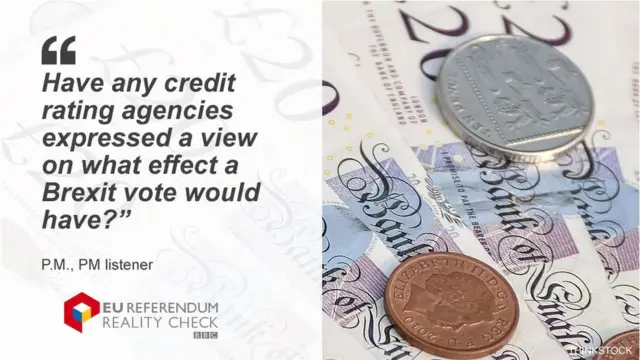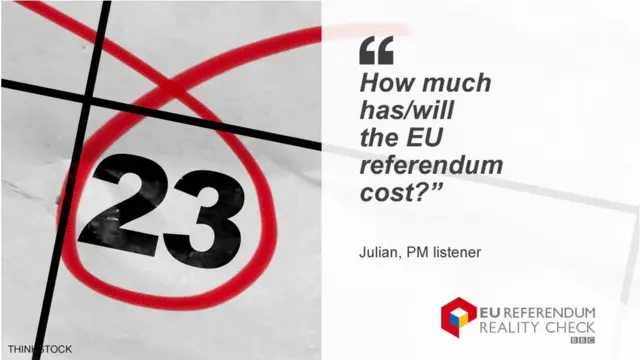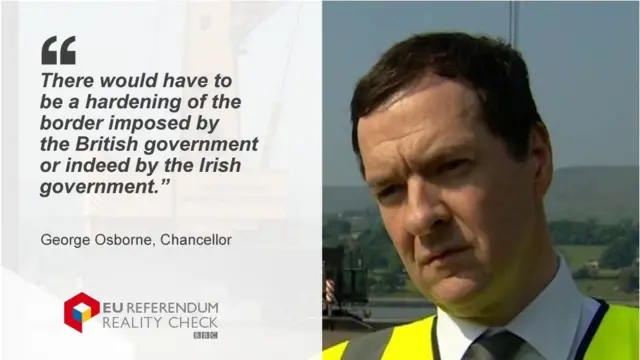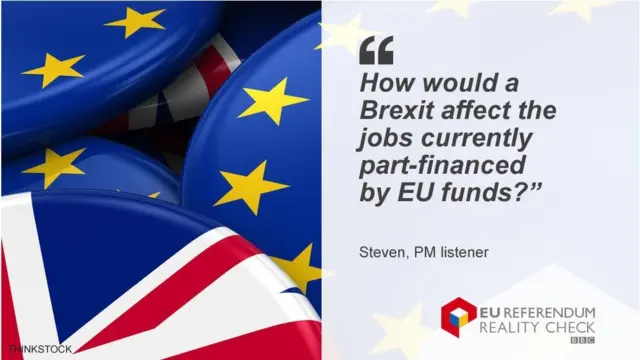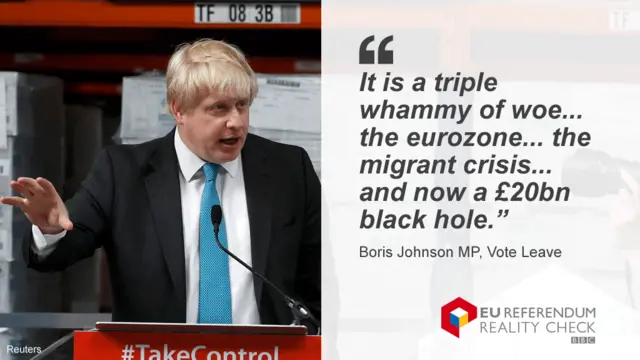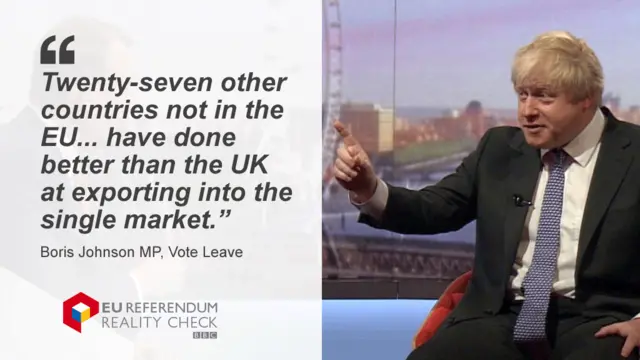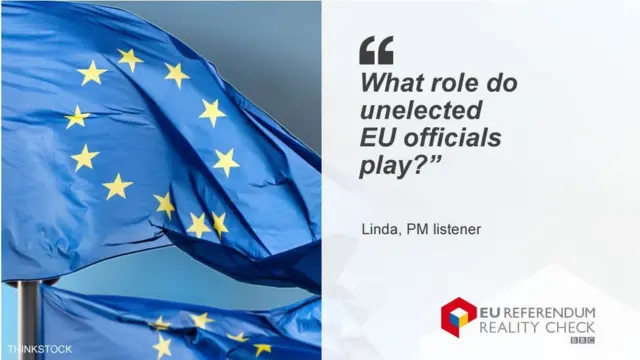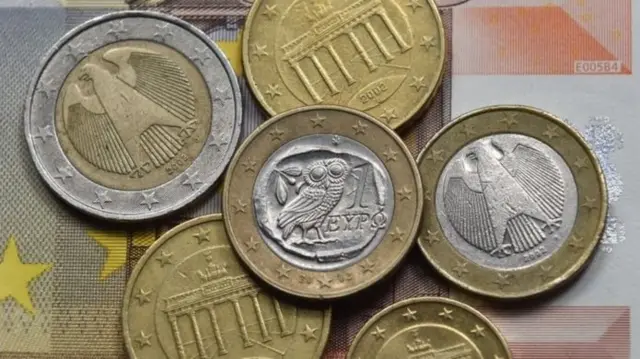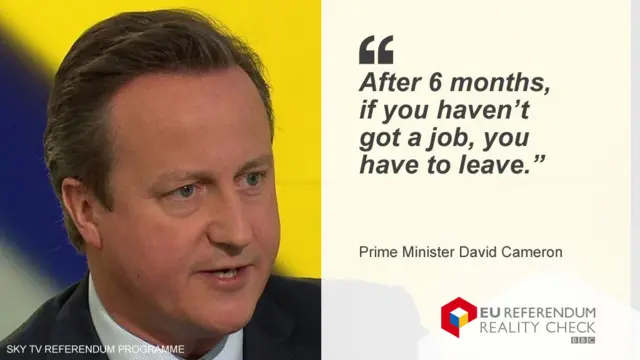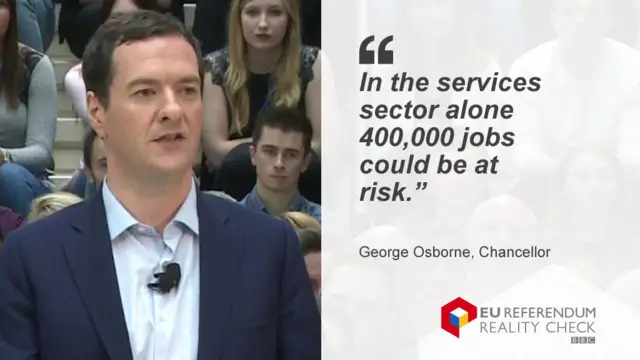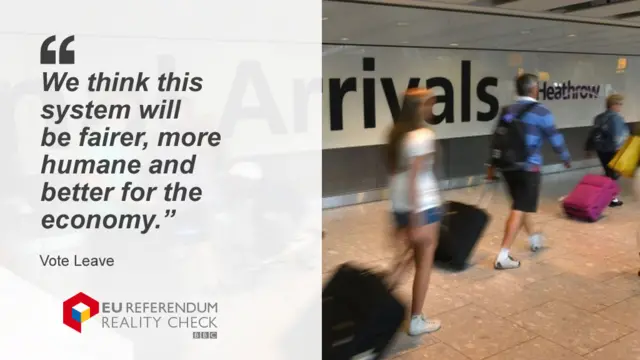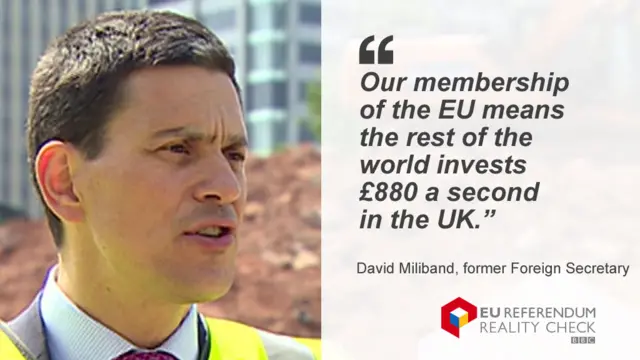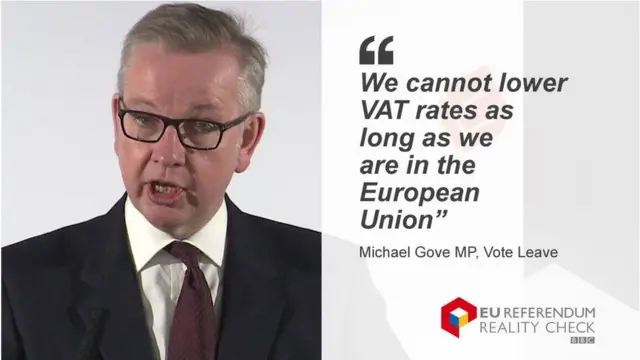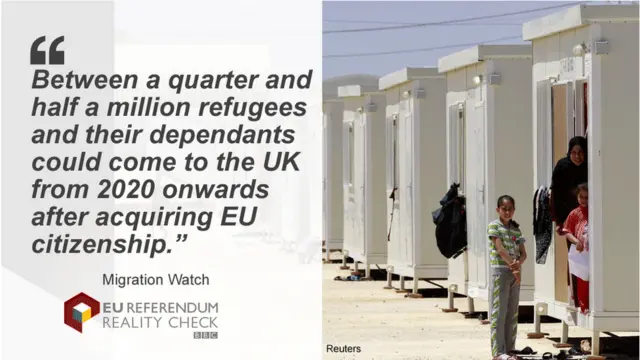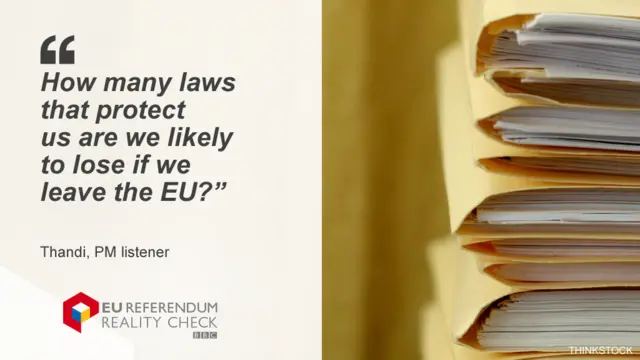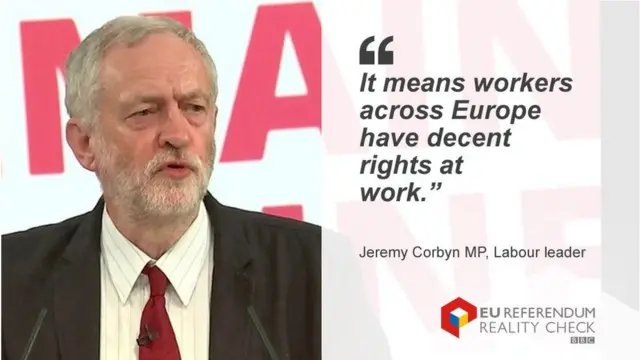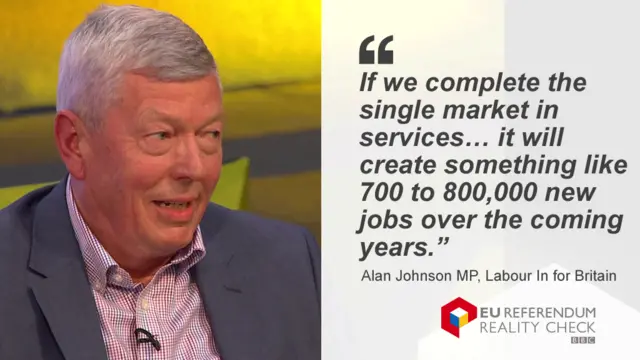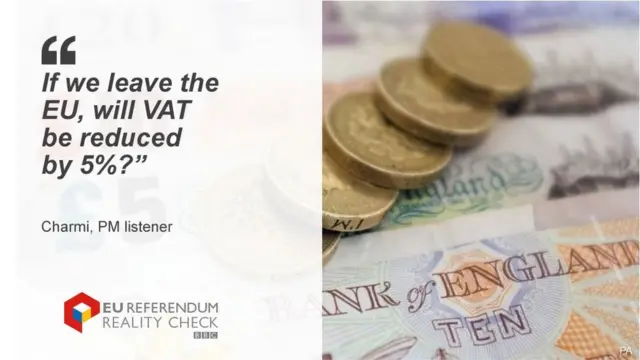Would the UK face tariffs outside the EU?published at 20:15 BST 9 June 2016
 Reality Check
Reality Check
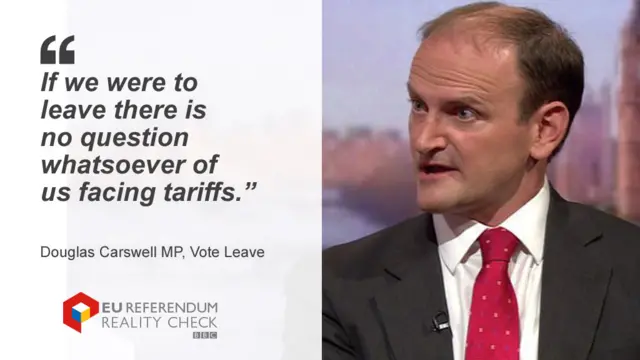
The claim: Douglas Carswell, the UKIP MP and Leave campaigner said on BBC Radio 4's Today programme "If we were to leave the EU we would start from the position of tariff-free unrestricted trade and we could certainly build on that and improve on that".
Reality Check verdict: How a new deal would look remains one of the biggest questions over a vote to leave the EU. The UK's current tariff-free, unrestricted trade deal with the EU would remain in place for at least the first two years of negotiations. No non-EU countries have negotiated tariff-free unrestricted trade with the EU without contributing to the EU budget and allowing unlimited EU migration.
